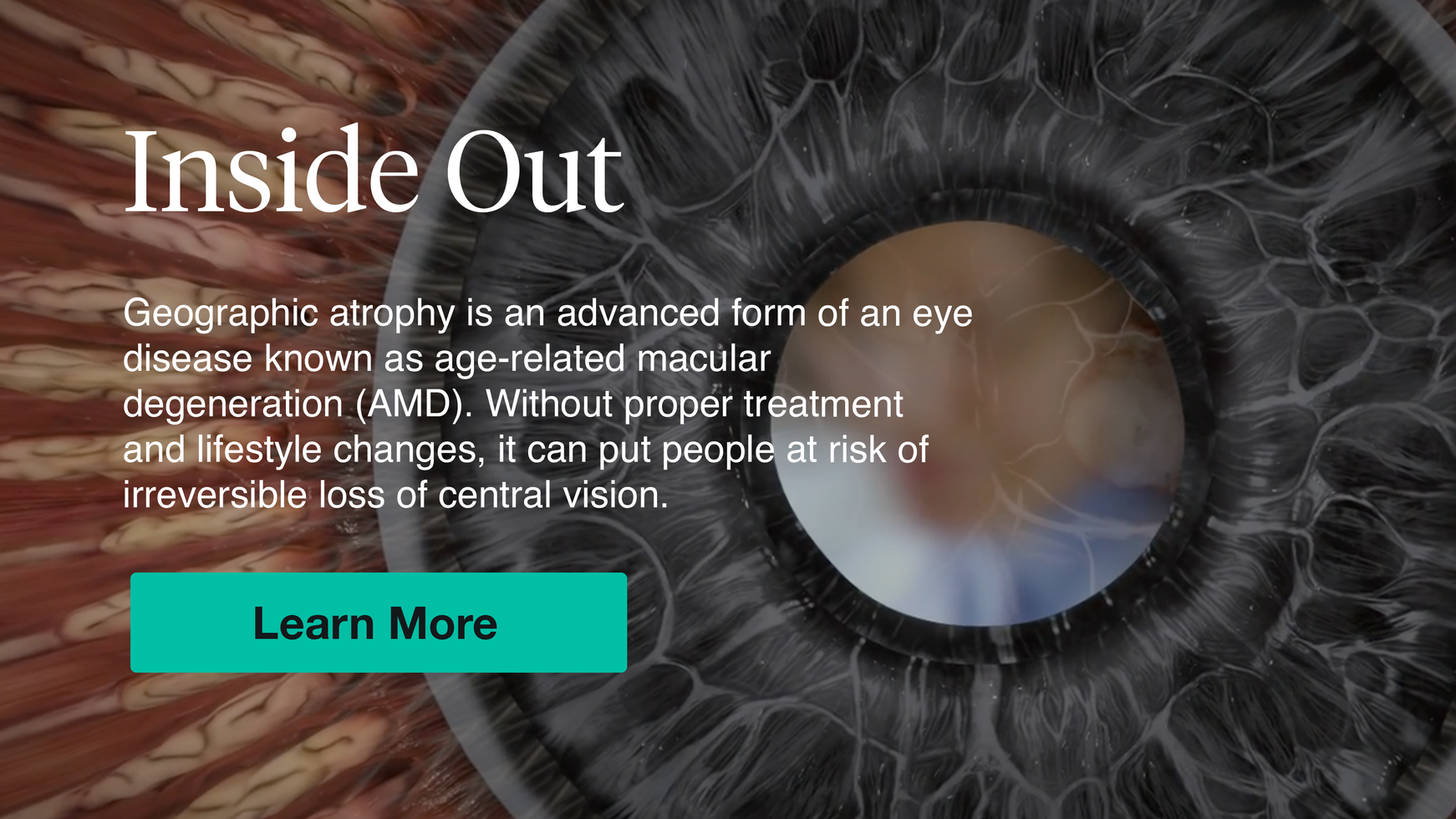Updated on September 26, 2024
Age-related macular degeneration (AMD) is a condition that damages the macula, the part of the eye that enables central vision. Central vision is “straight ahead” vision, the ability to focus on what the eyes are looking at and clearly see details.
The macula is made up of light-sensitive cells called photoreceptor cells. AMD causes the gradual loss of these cells. In the early stages, this may not result in noticeable symptoms. As AMD progresses, symptoms often become more noticeable. In the advanced stages, a person will experience significant central vision loss.
Geographic atrophy (GA) is an advanced form of AMD. It occurs when areas of photoreceptor cells have deteriorated, creating lesions of dead cells in a person’s vision. This can make it difficult to recognize faces, operate a vehicle, read, and perform many everyday tasks. GA is a progressive condition, meaning that lesions grow in size and symptoms become more severe over time, especially when left untreated.
Though there is no known cure for GA, two therapies that can help slow disease progression became available in 2023. The therapies being used to treat GA are complement inhibitors. These medications are given as injections into the eyeball. Though these medications cannot restore vision, injections can help slow down the growth of geographic atrophy lesions.
Preparing for an appointment
You will always get more out of a healthcare appointment if you show up prepared. This is true for eye appointments as well as other types of healthcare appointments.
One of the best things you can do to prepare for an appointment is to bring notes on what you want to discuss. This includes questions you want to ask as well as information you want to share.
Below are some ideas to help you get started.
What to ask your healthcare provider:
- How would you describe the severity of GA?
- What is the risk for GA progressing? How quickly can GA progress?
- What vision changes can I expect over the next five years? What activities or abilities will these changes affect?
- Do I have any other eye conditions in addition to GA? Am I at risk for other types of AMD or other eye conditions?
- What is causing or contributing to GA?
- What lifestyle changes can I make to help protect my vision?
- Are my family members at risk for GA or other age-related eye conditions? What can they do to reduce their risk?
- What treatment approach do you recommend? How does this treatment work? Why do you recommend this treatment approach?
- Do you recommend any low vision aids? Should I work with a low vision specialist?
- What other recommendations do you have?
If you have questions about your diagnosis or treatment options, ask your healthcare provider. Ask for clarification or explanation when you need it.
What to share with your eye care provider:
- Any changes in vision that you have experienced and/or any changes in how your eyes feel, especially any recent changes or changes you have noticed since your last appointment.
- How AMD and GA are impacting your day-to-day life. For example, tell your eye care provider about any tasks that have become more difficult, if your moods or behavior have changed, or if you have concerns about your health and safety.
- Any concerns you have about starting or continuing treatment for GA, such as the out-of-pocket costs, anxiety about injections, or difficulty getting to and from appointments.
- Your eye care provider should have up-to-date information on your medical history, including any health conditions you’ve been diagnosed with. Your eye care provider should also have contact information for the other healthcare providers you are working with.
- Your healthcare provider should have a list of any medications you are taking, including prescription medications, over-the-counter medications, and supplements (including herbal supplements).
It can help to have notes to refer to during your discussion. It can also help to have a friend or loved one accompany you to your appointment to take notes, help you refer to your notes, and provide support.





